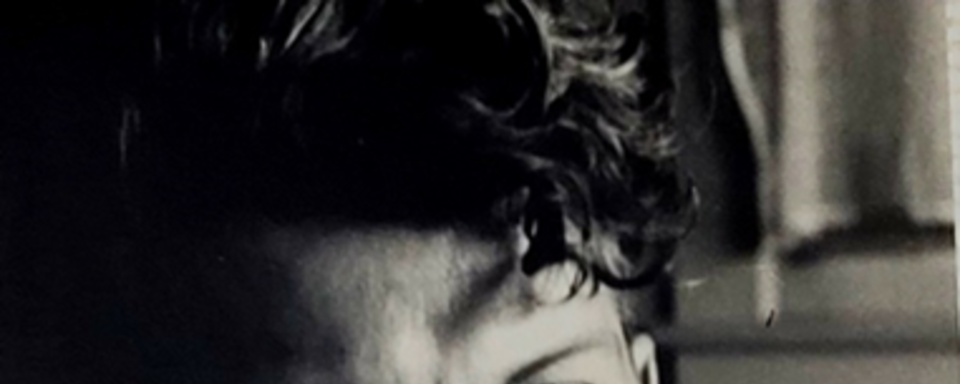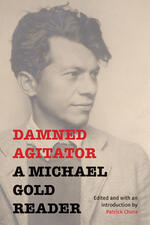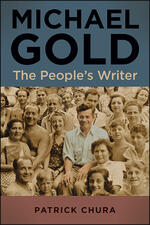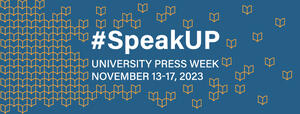
Leftist ‘Life Hacks’ from the Farewell Columns of a Damned Agitator
Guest post by Patrick Chura
As the author of Mike Gold’s biography. Michael Gold: The People’s Writer, you would think I’d know almost everything about the man. Actually I discover new things all the time, as I did recently while putting together for SUNY Press the first comprehensive anthology of Gold’s writings, scheduled for publication on November 1.
The title of the new anthology is Damned Agitator: A Michael Gold Reader because Gold wrote a fine short story with that title, but really because that’s what Mike Gold was. Born in a Manhattan tenement in 1893, the son of Jewish immigrants, he quit school at age twelve to support his family. In 1914 he became involved in the labor movement when, after losing his job, he wandered into a protest rally in New York’s Union Square. The crowd was attacked by police, and he was beaten with other demonstrators when he tried to help an injured woman. The next day he bought his first copy of the Masses. “I have always been grateful to that cop and that club,” Gold said, “He introduced me to literature and the revolution.”
Gold’s signature achievements were the best-selling 1930 novel Jews Without Money and his long-running Daily Worker column under the title Change the World. In the Depression decade he was a national figure, a household name in leftist circles, and he staked a claim to being the originating force of the once-mighty movement for a workers’ literature.
Of course, Gold spent the McCarthy years blacklisted and broke. His wife Elizabeth held down several jobs while he stayed home and did the cooking in their cold-water flat in the Bronx. Alone all day with his health deteriorating and FBI agents parked outside, he wrote poems that questioned whether he and his “petty troubles” could “outlast Wall Street America.” One year he got an idea for a business, the “Mike Gold Writer’s Workshop,” which he advertised as “a place where students can grow in the craft of writing by means of constant experiment, mutual criticism, and advice and inspiration from an experienced leader. The atmosphere will be not that of a classroom, but of a group of craftsmen helping each other.” Tuition for the ten-week class was a dollar a week. Few students registered.
The crisis and transition came in 1956, a terrible time in communist history. In June, the New York Times published the text of Khrushchev’s “secret speech,” fully revealing the immeasurable horrors of Stalin’s rule. That October Mike, Elizabeth, and their son Carl moved to San Francisco, settling into an apartment at 448 Waller Street. Simultaneously came news of the Hungarian crackdown—in which Soviet troops forcefully put down a pro-democracy movement, turning the situation into a bloody revolt. The brutal repression sent shock waves through the Soviet bloc but was just as devastating to the organized Left worldwide. Within weeks, 30,000 U.S. Communists quit the Party. Most of those who remained were bewildered.
At the San Francisco offices of the People’s World newspaper, the effect was immediate. Circulation fell to a nadir of six thousand. But among the many goodbyes and dispirited turmoil as the People’s World staff disbanded, there was, according to long-time editor Al Richmond, “one brave hello.” This was from Gold, who appeared in the newspaper’s offices one day to offer his services. The younger Richmond remembered Mike as the prophet of proletarianism and guiding light of the thirties. He resurrected Gold’s once-famous Change the World column and managed to put together a small syndication for the articles, guaranteeing his aging comrade fifty dollars a week.
Given the chance to earn a living again, the damned agitator seized the day. The fresh iteration of Gold’s journalism ran from 1957 to 1966, during which he only occasionally reminisced about the heyday of the Left. Mainly he showed how young he still was, observing the life around him from his flat in Haight-Ashbury to the jungles of Vietnam. Gold wrote about the civil rights “freedom fight” then reaching a climax in the South and about the beatniks outside his window, who never bathed but were “morally cleaner than the makers of the dirty wars, in the Congo, Vietnam and Santo Domingo.” His tone was not bombastic, as in the thirties, yet still oppositional, charged with anti-fascist resistance and optimistic about a socialist future.
Here are half-a-dozen life hacks—simple lessons, both personal and political—from the Mike Gold farewell tour:
1. Never tire but understand those who do. In “A Word to Tired Radicals,” a column of November 24, 1957, Gold wrote,
The pressure of McCarthyism, the breakdown of all leadership in this country, added to the Khrushchev horror, have set up a true moral fatigue. To deaden the pain in hearts that once beat strongly for progress and the human dream, [many] have taken up new hobbies and stepped to the sidelines.
Gold the firebrand would have condemned and castigated. But in changed times his message was deeper:
The feelings of such people are honest, and their wounds are the wounds of a friend. This places a heavy responsibility on those who remain in the left movement, particularly the Communist party.
2. Put away old disputes and work on relationships. Back in 1946, novelist-screenwriter Albert Maltz published in New Masses the essay, “What Shall We Ask of Writers,” in which he asserted that leftist novelists were producing inferior work because they were placing political concerns above artistic ones. For creative writers, Party doctrine was in Maltz’s view “not a useful guide, but a strait jacket.” In response, Gold and others publicly scolded Maltz. Gold’s invective was perhaps the harshest; he looked like a bully.
A decade later the old quarrel seemed insignificant, and in 1958 Gold took pleasure in celebrating Maltz’s latest novel, along with the younger writer’s strong stand against McCarthyism:
It seems a miracle, but a small band of dedicated writers still produces works of socialist realism in America. Albert Maltz is one of this group of valiant and lonely pioneers.
Maltz had gone to prison in 1950 for challenging the constitutional legitimacy of the House Un-American Activities Committee. The novel Gold was reviewing, A Long Day in a Short Life, grew out of that experience:
It is a beautifully told story, full of excitement and humor and authentic American talk. A masterly piece of work that will deepen your knowledge of America. . . It is almost a political crime to neglect such literature.
3. Go big or go home. Gold and W.E.B. Du Bois were close friends from the 1940s forward. Their families spent Thanksgiving together in 1952, and on Gold’s next birthday, his sixtieth, Du Bois wrote with encouragement: “Square yourself for the next sixty years Mike, we’ll win yet!” Gold was fond of referring to the United States as “The land of Lincoln and Dr. Du Bois.” On January 11, 1958, he shared a dream that was fifty years ahead of its time:
If America but knew her truly great sons, would not this birthday of Dr. Du Bois be celebrated in every public square and meeting place in the land? . . . I should like to nominate Dr. Du Bois for President on a United Front ticket. He is a one-man united front and worthy to lead the great cause.
4. Keep marching. In his seventies, Gold was still demonstrating, as shown in his column of June 15, 1963:
For the first time in a lifetime of demonstrations I was now marching in a parade where black and white Americans walked in equal numbers. It gave one a wonderful feeling of hope. Was a new nation, a new brotherhood, being born out of the flames of these giant struggles in the South?
We are passing into a new epoch. Such a vast movement for human rights could not have happened ten years ago in the ugly reign of McCarthyism.History is a zigzag. Did not McCarthy seem immortal? But as long as capitalism exists, it will produce these McCarthys and the war, racism and fascism that is their fatherland. Yet McCarthy is dead today with his great lies and infamies, while the people keep coming on, in Birmingham as in San Francisco.
5. Stand up for women. Perhaps few Americans know the name Valentina Tereshkova. She was a cosmonaut, the first woman in orbit, and she remains the only woman ever to complete a solo space mission. Gold’s column of July 20, 1963, “What Tereshkova Accomplished Here,” celebrated the courage of “that beautiful young Soviet girl.”
American “male supremacists” had called her flight a publicity stunt. One NASA official declared, “The talk of an American space woman makes me sick at my stomach.” Gold mocked the “silly cavemen who run the space show and distrust women as much as did their Victorian granddads.” He praised the “splendid American women who are professional air pilots” and were “vainly waiting and agitating” for their own places as astronauts. Gold noted that among the “weaker sex” in the USSR there were 332,000 physicians and surgeons as against 1400 in all America: “Male supremacists are obsessed with a defunct image of what America is.”
6. Choose your moment and bow out gracefully. By July 1966, Gold was going blind from diabetes and had to dictate his writing. Here is the brief final installment of Change the World, the last of a great many articles that await full appreciation. Gold died nine months later.
Dear Friends, dear Readers, dear Editors:
I am giving up, with your permission, the writing of future columns for at least a year. The project of an autobiography that I have been working on from time to time has become so compelling that I find myself unable to get my teeth into a column again. I think it would be better for everyone if I don’t attempt the impossible at this moment.
I am and I will always remain loyal to the tradition of working-class journalism in which I have labored for almost 50 years
With a warm comradely handshake to the young and old readers, to the wise, witty, militant, optimistic and fearless ones who read this paper and guarantee that it will never fail to survive the storms of social change,
Your friend,
MIKE GOLD



